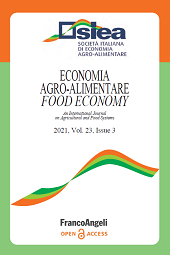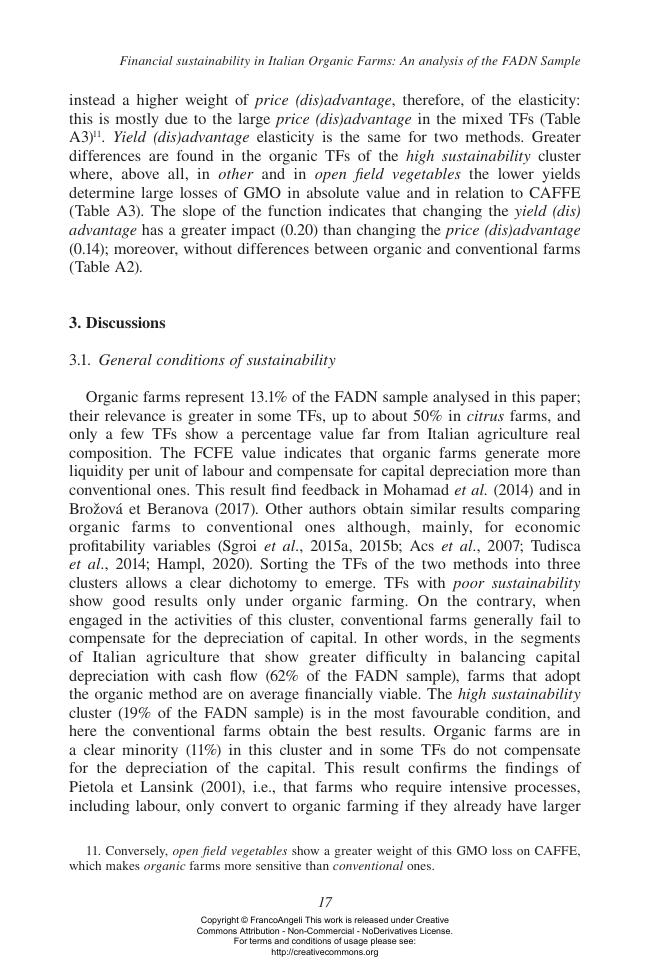Financial sustainability in Italian Organic Farms : an analysis of the FADN Sample
P. 1-32
With the European Green Deal, presented in December 2019, the EU Commission aims at making Europe the world's first climate neutral continent by 2050. In this plan agriculture plays a key role and so does organic farming. The aim of this work is to assess the financial sustainability of organic farms compared to conventional ones, measuring the liquidity they generate, evaluating its adequacy and identifying the factors that influence its extent. Specifically, this study uses the Italian FADN sample, made up of 18 TFs, and measures the Free Cash Flow on Equity (FCFE) for both organic and conventional farms. The econometric analysis identifies the variables contributing to cash flow production and is based on three types of variables: structural, including the cash flow itself, relative to farm results.
The analysis showed that financial sustainability is greater for organic than conventional farms, and in several cases the level reached by the former is very high especially in mixed TFs. Yet, a major part of the sustainability of organic farms is due to EU payments, mainly of the cap II type.Also, the balance of business relationships with customers and suppliers allows organic farms to increase liquidity almost as much as the total amount of public aid received. Still, this result should be supported by improving price and yield conditions, as much of the GMO is achieved with below-average value for both variables. Finally, our analytical approach can be used by Countries using the FADN to assess the situation of their agriculture and help direct policy support better. [Publisher's text]
Is part of
Economia agro-alimentare : XXIII, 3, 2021-
Articles from the same issue (available individually)
-
Information
ISSN: 1972-4802
KEYWORDS
- Financial sustainability, Cash flow analysis, Regression analysis, Organic Farming, FADN, European Rural Development Policy



